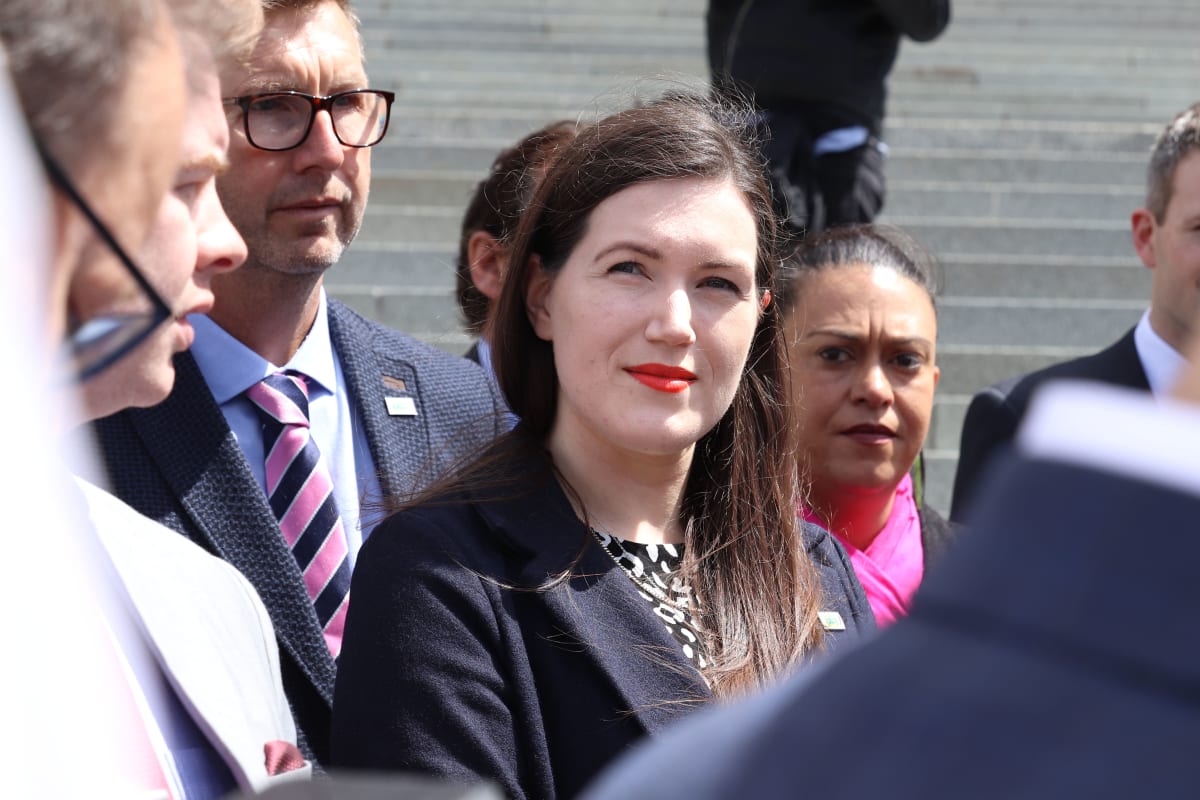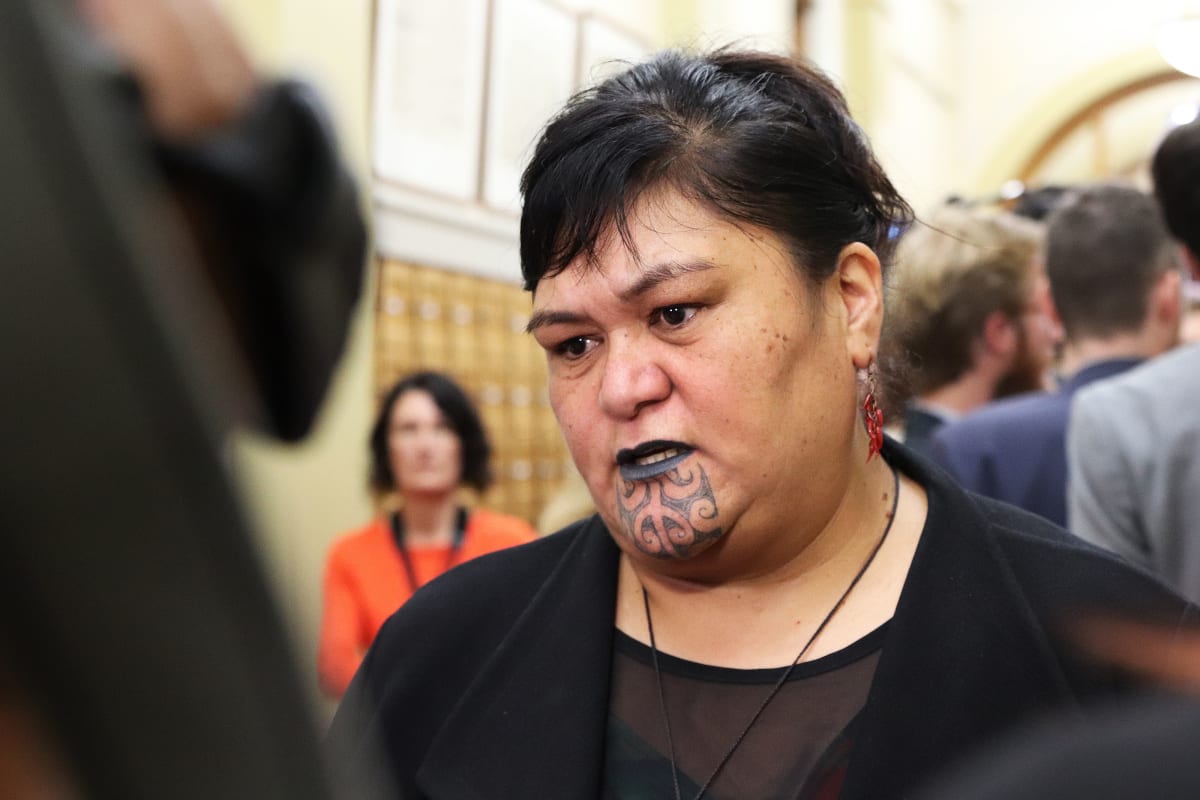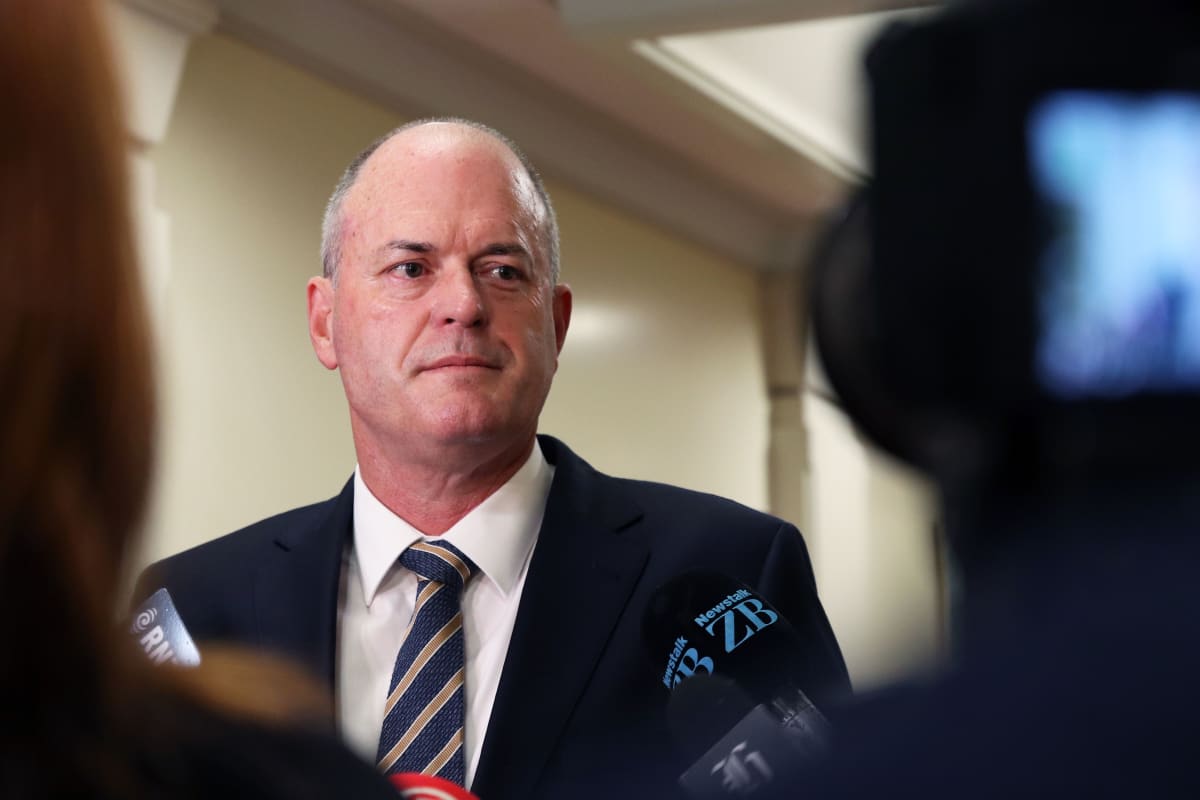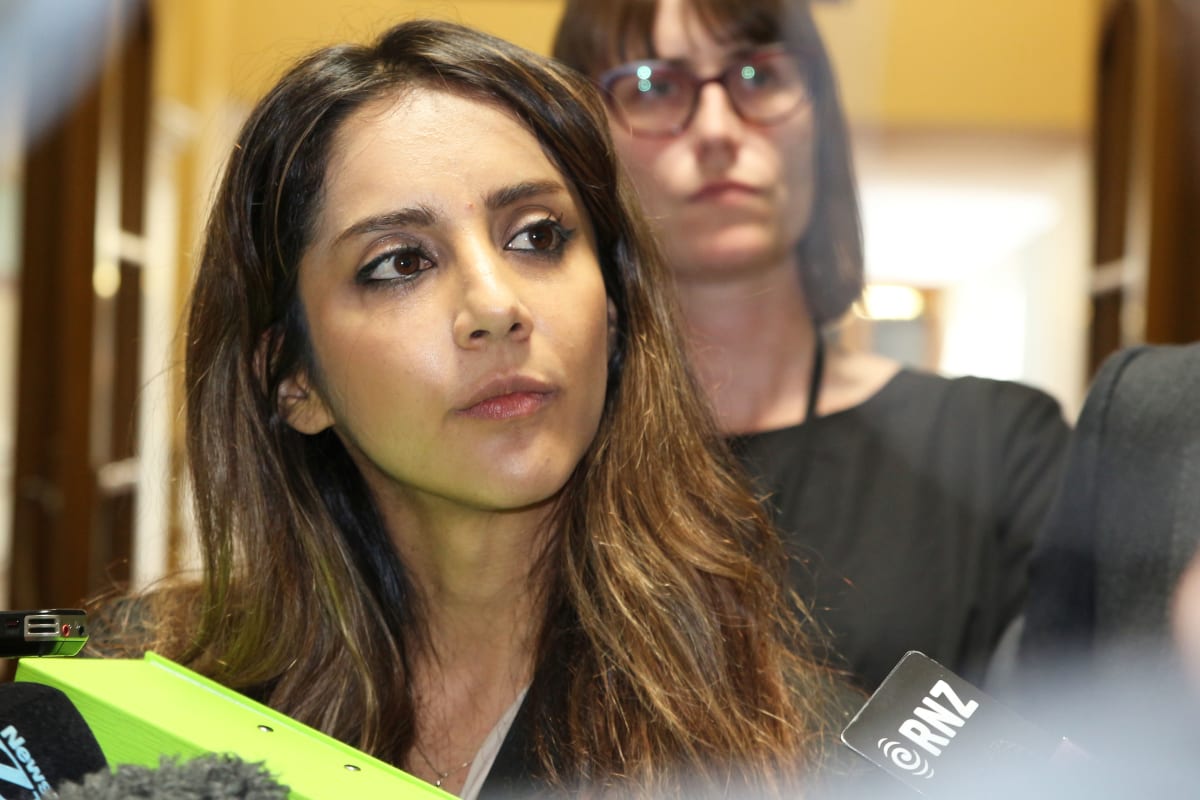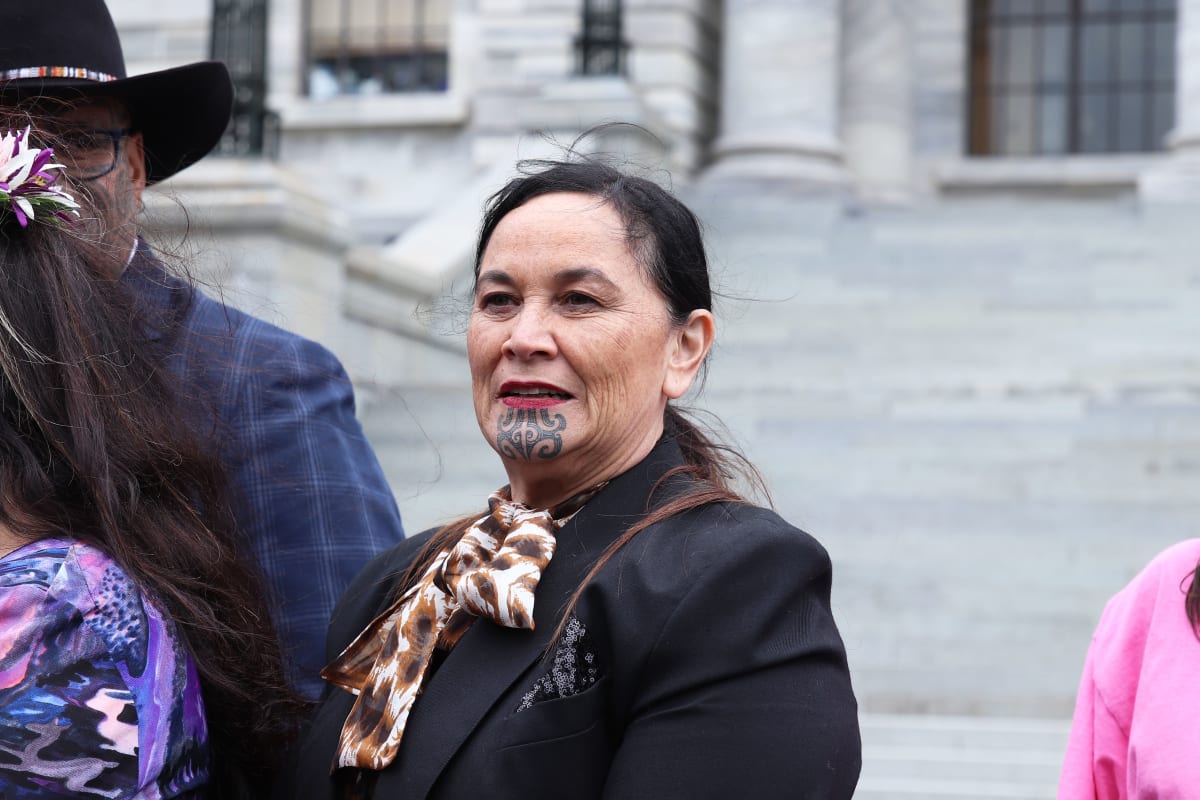Parliament’s Xinjiang Debate: The Speeches In Full
Foreign Affairs
On Wednesday, Parliament unanimously noted its concern about “severe human rights abuses taking place against Uyghurs and other ethnic and religious minorities” in China’s Xinjiang province. The full speeches from the parliamentary debate are reproduced below:
Brooke van Velden, ACT Party:
Mr Speaker,
I move that this House is gravely concerned about the severe human rights abuses taking place against Uyghurs and other ethnic and religious minorities in the Xinjiang Uyghur Autonomous Region. We call on the Government to work with the United Nations, international partners, and to work with all relevant instruments of international law to bring these abuses to an end.
First and foremost it is important that we are having this debate.
I want to thank members of all parties represented in our Parliament who have agreed for this debate to go ahead.
Some people think it is brave for our parliament to debate something the Chinese Communist Party may disagree with.
Think about that for a moment. We are elected by the people of New Zealand to debate freely and fearlessly, just so long as we don’t offend the Chinese Communist Party. That’s what it would have meant to not have this debate.
Start your day with
a curation of our top
stories in your inbox
Start your day with a curation of
our top stories in your inbox
It is vital that we are able to have this debate in the ultimate sanctuary of free speech, our Parliament. It is vital for our democracy, for our conscience, and for our position in the world.
I want to start by saying what this debate is not. I fear that some will try to misrepresent it, so let me be clear.
This is not a criticism of the country of China. It is not a criticism of Chinese people. It is certainly not a criticism of our Kiwi Chinese neighbours.
In my experience, it is that last group who are often the most strident in warning us about the regime that this debate is about, the Chinese Communist Party.
To our Kiwi Chinese friends, I say Good Afternoon, Ni Hao, Kia Ora. We need you in this conversation. We need you to look outside media that is influenced by the CCP, to examine other sources, and join in the effort to understand the rapidly emerging situation.
Before I go any further, I’d like to briefly comment on the procedures and motions that led to this debate. They may tell us almost as much about New Zealand’s position on the matter than the debate to come.
Unfortunately, we are only having half this debate. This is not the debate that I proposed to the Parliament last week. I proposed a debate on the exact Motion of Nusrat Ghani, that the British Parliament unanimously agreed to last month.
It read:
That this House believes that Uyghurs and other ethnic and religious minorities in the Xinjiang Uyghur Autonomous Region are suffering Crimes Against Humanity and Genocide; and calls on the Government to act to fulfil its obligations under the Convention on the Prevention and Punishment of Genocide and all relevant instruments of international law to bring it to an end.
In that debate, the Minister representing the Government, Nigel Adams, said the U.K. Government would not declare a genocide is taking place, saying that is the role of a properly competent court. Many speakers in that debate argued that no such court hearing is possible given the alleged perpetrators will not allow access to the Xinjiang region.
I’ll turn to those arguments later, but the fact is the British Parliament had a debate about genocide. Here in New Zealand, other parties, who had the power of veto, would not allow this debate to proceed if the motion mentioned genocide.
It’s important for people to know how we got to debating the motion before us today. I started with the same motion as the British, then had to dilute it and soften it to gain the approval of New Zealand’s Governing party.
Turning to the importance of our democracy, we are fortunate to have inherited the best system of Government. It was hard won, at times, by our ancestors. The names of battles around this chamber are a daily reminder of that.
As recently as this year, we have seen a legislature like ours, in Hong Kong, lose those rights. It is critical that we assert parliamentary sovereignty. We must reject the idea that foreign powers can interfere in our institutions.
It remains problematic that we have seen the Chinese Consulate successfully prevent students and faculty at AUT University commemorating the Tiananmen Square massacre.
The Vice Chancellor’s acquiescence was understandable, he was reliant on international student revenue. The CCP could easily turn that tap down, or off completely. But in that decision, he also made AUT University a microcosm of New Zealand as we all face the challenge he did on a larger scale.
Universities play an important role as the critic and conscience of society, but Parliament plays an essential role as the democratic expression of the people’s sovereignty.
For our parliament to ignore reality and oppose this motion out of fear, as the Minister of Trade seemed to suggest we should yesterday, is intolerable.
Mr Speaker, our conscience requires that we support this motion. We know that a genocide is taking place. The evidence is voluminous, from multiple sources, and credible.
It is also true that the Uyghur people have been engaged in terrorism across China. This should not be without consequence, but genocide is not a justifiable consequence for anything. It is certainly not justifiable to show ‘absolutely no mercy’ as President Xi called for in the ‘People’s War on Terror’ centred on Xinjiang.
Genocide does not require a war. It does not need to be sudden, it can be slow and deliberate, and that is what is happening here.
New Zealand and China both signed the Convention on the Prevention and Punishment of the Crime of Genocide, in 1949. It gives an internationally agreed definition of genocide.
any of the following acts committed with intent to destroy, in whole or in part, a national, ethnical, racial or religious group, as such:
- Killing members of the group;
- Causing serious bodily or mental harm to members of the group;
- Deliberately inflicting on the group conditions of life calculated to bring about its physical destruction in whole or in part;
- Imposing measures intended to prevent births within the group;
- Forcibly transferring children of the group to another group.
Not one, but each of these are occurring in Xinjiang, according to multiple sources.
To take one example, there has been mass imposition of contraceptive devices upon Uyghur women, and forced sterilisation, matched by an enormous reduction in fertility rates in Xinjiang.
The Parliaments of Canada, the United Kingdom, and the Netherlands have all passed motions condemning the Chinese Communist Party for genocide. The United States Federal Government has done so twice. Once under President Trump and again under President Biden. Not many things can unite those two.
Some will say that the Convention requires a competent court to decide what is and is not a genocide. That is a principle I would normally agree with, but let’s be honest. The perpetrator of a genocide is not going to submit to a court hearing.
Our conscience demands that if we believe there is a genocide, we should say so.
Finally, we must consider the geopolitical and trade implications of this situation. There will be some who say it is irresponsible to bring this motion.
The ACT Party believes it would be irresponsible not to. New Zealand plays an important role in the global community.
The world is looking to us now to see what standard we are going to set. Can the CCP play us off as the weakest link in the Western Alliance. Will we abandon our longest standing ally across the ditch if enough carrot and stick is applied?
We may face the threat of losses for speaking our mind, but we face much greater dangers if we don’t.
The standard we set may be our destiny. A small country has more to lose than most in a world where democratic nations are bullied, played off against each other and cowed by trade sanctions and worse.
Our best hope of security and prosperity is collective defence, so we must make sure the standards of the world are set as high as possible.
Mr Speaker, Standing Orders prevent me from amending my own motion, but I have put a signed amendment on the table which reflects the genocide occurring. I hope that some other member will move the amendment so that it can be debated.
In the meantime, I call on the Government to use all instruments of international law available to it to ensure that the genocide underway is investigated and its perpetrators be brought to justice.
Foreign Affairs Minister Nanaia Mahuta, Labour Party:
I stand in support of members’ motion No. 1 and I acknowledge the unanimous support across the House for the motion.
[te reo text to be inserted by the Hansard Office]
The New Zealand Government has publicly stated its grave concerns at the growing number of credible reports of severe human rights abuses taking place against Uyghurs and other ethnic and religious minorities in Xinjiang Uyghur Autonomous Region. Since 2018, when reports began to emerge of large-scale extrajudicial detentions in the region, we have consistently called on China to respect the human rights of the Uyghur people and other ethnic and religious minorities. The Prime Minister has raised our concerns at the highest levels, with China’s leadership, and joined partners in amplifying these concerns at multi-lateral fora, including the United Nations. My Australian counterpart and I issued a joint statement in March this year on Xinjiang, and the Prime Minister reiterated our grave concerns as recently as this week at the China Business Summit.
While the New Zealand Government has grave concerns about the human rights situation in Xinjiang, we have not formally designated the situation as constituting a genocide. This is not due to a lack of concern. Genocide is the gravest of international crimes, and a formal legal determination should only be reached following a rigorous assessment on the basis of international law. International courts have required fully conclusive evidence before reaching a conclusion of genocide. New Zealand has not previously made an independent determination of genocide, we’ve relied upon judicial findings of genocide, in the case of Cambodia, Rwanda, and, of course, the Holocaust.
The New Zealand Government, in concert with others, will continue to call upon China in the strongest terms to provide meaningful and unfettered access to the United Nations and other independent observers to ascertain the situation in Xinjiang. Aotearoa New Zealand will continue to work with our close partners to speak up to defend the human rights of religious and ethnic minorities in a meaningful way. We will continue to work with the United Nations, international partners, and relevant instruments of international law to bring these abuses to an end. We welcome Parliament forming a view and debating this critical issue. We are, of course, a democracy. It raises awareness of the issue in this House and in the wider community. We call on China to uphold its human rights obligations and to respond to the well-founded concerns of the international community.
[Authorised te reo text to be inserted by the Hansard Office.]
Todd Muller, National Party:
The National Party joins with the other parties of the New Zealand Parliament in support of the parliamentary motion No. 1. Two days ago, I had the privilege of attending the 7th annual China Business Summit in Auckland, where our longstanding relationship with China was assessed through the lens of the last 50 years, and the mutual challenges and opportunities which sit in front of us. I was reminded of our longstanding diplomatic relationship, dating back to 1972, and our broader history which goes back even further. I listened to what China and New Zealand have built together over this time, how our two countries have grown, and our people succeeded together—in particular, since the signing of the trade agreement in 2008. I reflected that, in a world where people are increasingly at odds, and where a shared sense of purpose has often been replaced with self-interest—and conflicts of self-interest—it remains as true as ever that an ability to engage and to discuss issues are critical to our ongoing peace and prosperity. But that peace and prosperity must be shared.
The depth of our relationship has also allowed us to sit across the table from each other, or alongside each other, to discuss ideas or to raise concerns. It has meant we can have a frank discussion as two peoples who don’t always agree, but who have respect for each other and a willingness to listen and, where necessary, to be criticised.
What also struck me, while listening to the insights from businesses such as Alibaba and Guangxin Technology Co. and Fonterra and Zespri is that while analysts see trade in terms of billions of dollars and percentage of exports and the rise of e-commerce, the true strength of our commercial and cultural connection is anchored in the relationships between our people—Chinese and New Zealanders, Chinese New Zealanders and their families back home, and the sharing of ideas and opportunities across borders in a world where those boundaries are increasingly impermeable. It is the strength of the personal relationship between New Zealand and Chinese people that has created our shared history. It is the depth of those personal relationships that will guide us through this difficult conversation, because the conversation will be at times difficult.
New Zealand is known for its willingness to walk softly amongst the hard paths of geopolitics, but we walk our own path. We are known to speak with a measured tone and a manner that seeks to resolve and not to compound. But we speak with our own voice. We speak it to those we believe should hear us, but we do not seek to grandstand. But neither do we shirk from uncomfortable conversations, and, today, this House speaks in one voice with our concerns about severe human rights abuses in China. We understand that China views any matter relating to its 1.4 billion people as entirely a matter for its own consideration, but we share one planet and there are fundamental tenets of humanity that should not be constrained by borders or political systems or ideologies. This Parliament and the 5 million people we represent believe that it is a basic human right for people to feel safe in their homes, to pray to whom they wish to pray to, to hug who they love, and to identify with a cultural tradition that best reflects their whakapapa and tūrangawaewae. We are very concerned that this is not a reality for the Uyghurs and other ethnic and religious minorities.
Today is about raising our concerns respectfully but directly to our Chinese counterparts. Two days ago, the Chinese ambassador said these concerns are unfounded. But the National Party urges, in unison with our parliamentary colleagues, that China work with the United Nations and other international partners to confirm that the concerns of our community and this Parliament can be addressed, and conditions significantly improve for the Uyghur people and other ethnic minorities.
It is our hope that our voices here today are heard through the appreciation of our shared history, the depth of our personal relationships, and acknowledgment that we have always been able to speak to each other with mutual respect and reciprocity.
Golriz Ghahraman, Green Party:
I move that the text of the motion be amended to read, according to the Speaker’s Order Paper No. 10: “That this House believe that Uyghurs and other ethnic and religious minorities in Xinjiang Uyghur Autonomous Region are suffering crimes against humanity and genocide, and call on the Government to act to fulfil its obligations under the Convention on the Prevention and Punishment of the Crime of Genocide and all relevant instruments of international law to bring it to an end.”
The Green Party unequivocally condemns the grave atrocities being suffered by the Uyghur minority in Xinjiang province and other religious, linguistic, and cultural minorities at the hands of the Chinese Government. I rise today, as an indigenous Kurdish woman, who has suffered what I would characterise in my own region as amounting to at least crimes against humanity, to ethnic cleansing, and perhaps to genocide. I rise also, I note, as we all do each day in this House, on land that was never ceded by the indigenous people of this land, where we know that similar atrocity crimes have been committed and suffered.
I want to thank the member who has brought this motion to the House. I do regret that the final motion that has been debated thus far was, to put it mildly, watered down, and that the House has shied away from talking about atrocity crimes being committed by the Government of China, but rather what we’re now calling “severe human rights breaches”. It is important the words that we use in condemnation of what is happening, at the scale that it’s happening, with the systemicity that is happening in Xinjiang province in China, and at the hands of any Government that treats its minorities with persecution and with what we know is what amounts to torture, what amounts to forcible sterilisation with children being removed, and what we know the numbers are, which is approaching well over a million. That’s all we know coming out of a closed region, based on UN conservative estimates.
We also, here in Aotearoa New Zealand, sit in a House of Representatives where just a year and a half ago, just two years ago, our Muslim minority suffered what our nation now recalls as the latest of grave hate crimes. Again, we know that ethnic violence was not new at that moment on March 15, 2019. We know that our indigenous people have suffered it for a long time. So we stand here in solidarity with the Uyghur minority, knowing a little of their pain.
The crime of genocide—and I have sat in courtrooms, both in defence and in prosecution of that crime—amounts to any act with the intention of destroying that population based on its ethnicity, nationality, religion, or race, in whole or in part, in any region. It isn’t the crime of crimes. All atrocity crimes are equal before the law in international courts. The crime of crimes in Nuremberg was actually recognised as the crime of aggression. We don’t often condemn the crime of aggression in our Western Parliaments or by Governments, and I do wonder why we sometimes, in fact, send our troops to be complicit and to aid and abet in that crime when it happens, at least in my region of the world.
So, today, I hope that this marks a shift that New Zealand’s Parliament is going to stand in solidarity with victims of atrocity crimes, whether they are unlawful wars, whether they are war crimes, whether it’s genocide or crimes against humanity, whether they are committed by Governments who we see as our traditional allies, our trading partners, and, indeed, especially if they’re happening in our Asia-Pacific neighbourhood, as these crimes are today.
But what matters is not only our words of condemnation. It’s not whether or not we recognise this as a genocide and not another atrocity crime. What matters is our actions. I was deeply disappointed to hear leadership from both major political parties refer to trade as a consideration for them when they were discussing whether or not they would allow a motion using the word “genocide” when they were talking about the mass torture. Extrajudicial detention is sterilisation and slavery of some 1 million people. That was stunningly callous. It was absolutely morally indefensible and it is a breach of New Zealand’s legal obligations, our absolute responsibility to support an international rules – based order, where we uphold not only human rights but where we condemn, help to prosecute, punish, and prevent atrocity crimes, because we know that mass crimes like this are an absolute threat to international peace and security to all of our dignity, all of our human rights.
I do hope that this is a motion that will trigger action. What the Green Party has been condemning is happening in Xinjiang province, requires us to stop trade of slave labour goods coming out of that region. Our Ministry of Foreign Affairs and Trade, under questioning and in the select committee, said that they couldn’t even identify if it was happening. Last week, we found out that the Greater Wellington Regional Council had inadvertently bought buses that were very likely produced by Uyghur slave labour, after asking the ministry for go-ahead. We know that that same ministry gave up to 260 permits for trade of military equipment, including under a UN blacklist, which we breached in selling military goods to the Saudi military when they were blacklisted for killing Yemeni children. When I asked ministry officials about that in select committee, they laughed.
We know that our Government is not doing enough to prevent atrocity crimes and uphold our international obligations. We know that the ACT Party itself voted down the last time legislation came through this House to prevent slave labour goods from being sold in New Zealand. We want action, not just words. We owe the victims action and we owe victims across the globe that same condemnation and action. We owe it to the Palestinian children being removed from their homes and imprisoned. We owe it to West Papuans being extrajudicially imprisoned in our Asia-Pacific neighbourhood. We owe it to Western Saharans, who are right now under the process of UN’s decolonisation framework. New Zealand remains the only nation trading in their minerals stolen from their land. We owe an even hand to victims of atrocity crimes across the world, and this motion will hopefully be a beginning of that. We owe it to the people of Aotearoa New Zealand to be on the right side of history. Thank you, sir.
Debbie Ngarewa-Packer, Te Paati Māori:
Thank you, Mr Speaker. We will support Parliament’s No. 1 motion as it aligns with our values as tangata w’enua. Also, Te Paati Māori will vote in support of this motion as it rightly draws attention to the suffering of Uighur people and the human rights abuses they are facing. We are pleased to see the point of order to stop this motion being watered down before it was debated. We must never attempt to silence the atrocities of genocides, and that’s happening to indigenous peoples. We need to be calling out these atrocities for what they are, wherever they are happening in the world.
I stand as a descendant of Pari’aka, a descendant of muru raupatu. The depth of pain of genocide can never be explained. The deliberate killing of a large number of people from particular or ethnic groups with the one aim of destroying or wiping out that nation or group is deplorable. I guess what we are here for today is making sure that we use our sphere of influence to bring to attention that more than a million people are estimated to have been detained at internment camps in the regions, and many are suffering from rape; abuse; horrible, inhumane practices such as organ harvesting; mass torture; slavery; forcible removals. We must condemn these actions for what they are. We must make sure that we never lose sight of those who have been our w’anaunga, those who we have living beside us.
Te Paati Māori has a strong track record on standing up for human rights and indigenous rights in Aotearoa and internationally—in fact, it’s been the bane of much discussion this week. We will continue to advocate for indigenous peoples and fight racism and bigotry in all its forms. We stand in solidarity with all indigenous and oppressed peoples right around the world. Ethnic violence starts with racism. Racism is something that we shouldn’t be scared of calling each other up for. We should use this place to lead and stamp it out. I don’t think that’s the example that we’ve been seeing out of this place, this House.
Just as we stand with our w’anau, with our people, we too need to stand with our Pasifika w’anaunga in West Papua who are suffering genocide. We stand with our tangata moemoeā Aboriginal brothers and sisters. We stand with the First Nations of Turtle Island fighting for justice at Standing Rock and our Hawaiian w’anaunga at Mauna Kea. Let me remind this House again that we normalise and continue to be OK with those who have been perpetrators of genocide, with the monsters we still continue to have on our walls.
Finally, ACT is well known for pushing colonial agendas that oppress indigenous peoples here in Aotearoa, so it’s important that Te Paati Māori say that we struggled to understand how they’ve all of a sudden adopted or developed a desire to support the indigenous peoples in China. It was just five months ago they were calling to abolish our own Human Rights Commission. In this House, we continue to hear words like segregation, separatism, apartheid—those denying partnerships of Te Tiriti. One would hope that they extend this new moral position to their own country and let the tangata w’enua enjoy the same support that they are proposing for everyone else. Nō reira,
[Authorised te reo text to be inserted by Hansard]

